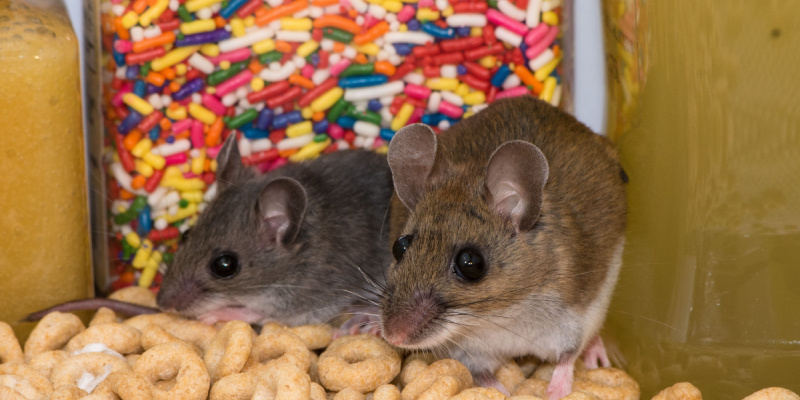Discovering a mouse or rat problem in your home can be a disconcerting experience. These rodents can damage property, contaminate food, and carry diseases, making it essential to address the issue promptly. However, many homeowners wonder whether they can effectively deal with a mouse or rat infestation on their own or if they should seek professional help. Let’s examine the options and considerations for tackling a rodent problem independently.
The DIY Approach
Taking a do-it-yourself (DIY) approach to handle a mouse or rat problem can be cost-effective, but it requires careful planning and execution. Here are steps you can take to address the issue on your own:
1. Identify the Problem
Before taking any action, it's crucial to confirm the presence of rodents in your home. Look for signs like droppings, gnaw marks, nesting materials, or unusual noises. Identifying the type of rodent (mouse or rat) and the extent of the infestation is essential for developing a targeted strategy.
2. Eliminate Attractants
Rodents are attracted to easily accessible food sources. Start by removing potential attractants, such as crumbs, food waste, and open food containers. Store food in sealed containers, clean up spills promptly, and secure trash bins.
3. Seal Entry Points
Mice and rats can squeeze through tiny openings, so it's crucial to locate and seal any gaps, cracks, or openings in your home's exterior that they could use to enter. Use materials like caulk, steel wool, or wire mesh to close these entry points.
4. Set Traps
Traps are a common DIY method for dealing with rodents. Various types of traps are available, including snap traps, glue traps, and live traps. Select the appropriate trap based on your comfort level and the type of rodents you're dealing with.
- Snap Traps: These are designed to kill rodents instantly when triggered. They are effective but require caution when setting and disposing of them.
- Glue Traps: These traps use adhesive to immobilize rodents. While they don't kill instantly, they can be effective in capturing mice and rats.
- Live Traps: Live traps capture rodents without harming them, allowing you to release them outdoors. This is a humane option but requires handling and releasing the rodents.
5. Monitor and Dispose
Regularly check the traps to see if you've caught any rodents. Once captured, follow local regulations for the humane and safe disposal of rodents. Wear gloves and take precautions when handling traps or disposing of rodents.
6. Maintain Cleanliness
Keep your home clean and clutter-free to minimize hiding spots for rodents. Clean areas that may have had rodent activity, like droppings or urine, using appropriate disinfectants.
7. Be Patient
Addressing a rodent problem can take time. Continue to monitor and reset traps as needed until you are confident that you have eliminated the infestation.
Considerations for DIY Rodent Control
While the DIY approach can be effective in many cases, it's essential to consider certain factors:
- Safety: When using traps or handling rodents, prioritize safety. Follow instructions carefully, wear appropriate protective gear, and take precautions to avoid injury or disease transmission.
- Knowledge: Understanding the behavior and habits of rodents is essential for successful DIY control. Research and educate yourself about the specific rodents you're dealing with to develop an effective strategy.
- Persistence: Rodents are adaptable creatures, and it may take time and multiple attempts to eradicate an infestation completely. Be patient and persistent in your efforts.
- Professional Assistance: If the infestation is severe, persistent, or poses health risks, it's advisable to seek professional pest control services. Pest control experts have the experience, knowledge, and specialized tools to address challenging rodent problems safely and effectively.
When to Seek Professional Help
There are situations where it's best to enlist the services of a professional pest control company.
1. Severe Infestation
If you have a severe or extensive rodent infestation, DIY methods may not be sufficient to eliminate the problem entirely. Professional pest control experts can assess the situation and provide a comprehensive solution.
2. Health Risks
Rodents can transmit diseases through their urine, feces, and bites. If you or your family members are at risk of exposure to rodent-borne illnesses, it's safer to rely on professionals who can handle the situation with expertise.
3. Repeated Infestations
If you've experienced multiple rodent infestations despite your best efforts, it's a sign of a deeper issue. Pest control professionals can identify and address the root causes, such as structural vulnerabilities, to prevent future infestations.
4. Structural Damage
Rodents can cause significant damage to your home's structure, wiring, and insulation. Professional pest control services can assess and repair this damage while eliminating the infestation.
While it is possible to address a mouse or rat problem on your own through DIY methods, it's essential to consider factors like safety, knowledge, and the extent of the infestation. When in doubt or when faced with severe or recurring rodent issues, seeking the professional pest control assistance of All Pest Solutions is a wise choice. We can provide effective, safe, and long-term solutions to ensure your home remains free from unwanted rodent guests.

